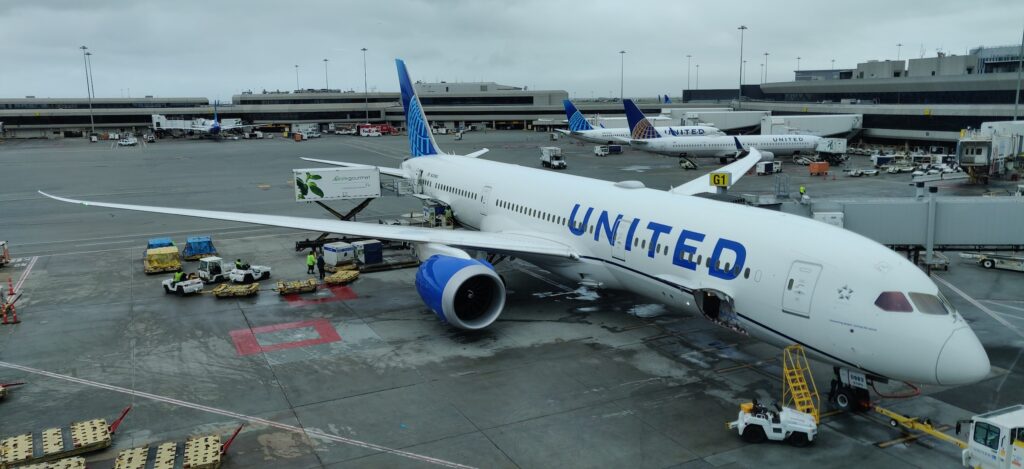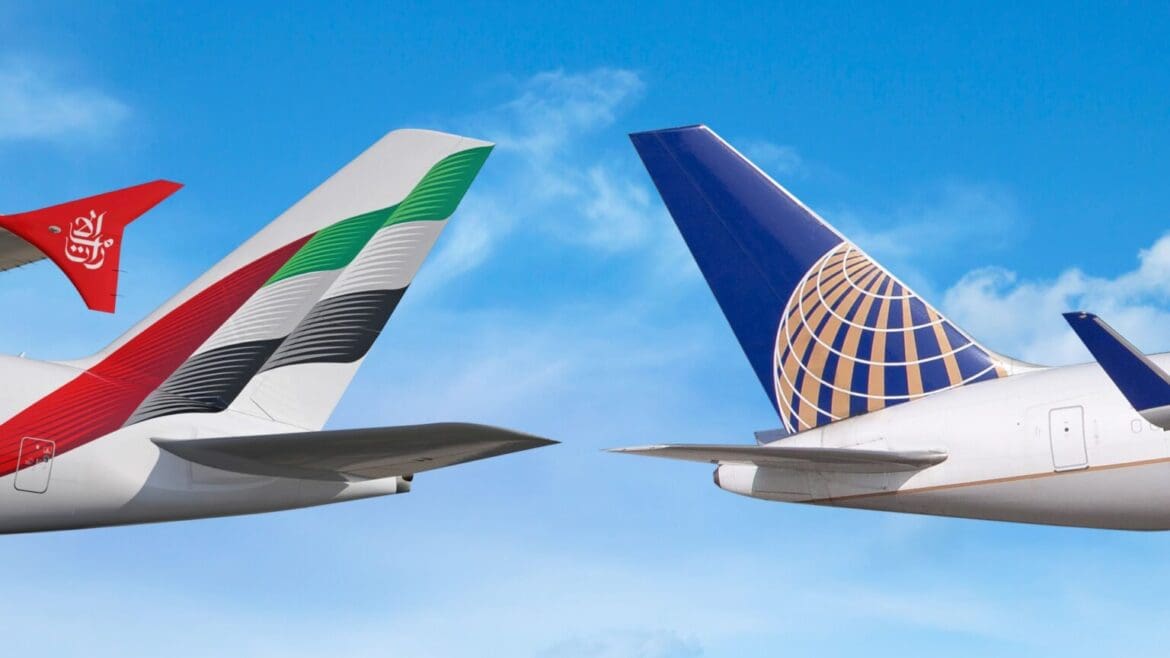Advertiser & Editorial Disclosure: The Bulkhead Seat earns an affiliate commission for anyone approved through the links below. This compensation may impact how and where links appear on this site. We work to provide the best publicly available offers to our readers. We frequently update them, but this site does not include all available offers. Opinions, reviews, analyses & recommendations are the author’s alone, and have not been reviewed, endorsed, or approved by any of these entities.
United Airlines announced a partnership with Emirates last September (I wrote about it here). This was a shock to many in the industry as the airlines had previously been adversaries. Details came out in late March and a codeshare arrangement was announced along with a few reciprocal benefits for each carrier’s elite members.
United Airlines planned to sell codeshare flights operated by Emirates to 27 destinations with eight of those being in India. Emirates would have access to three of United’s biggest hubs: Chicago O’Hare International Airport (ORD), George Bush Intercontinental Airport (IAH), and San Francisco International Airport (SFO) to connect to over 150 US cities that United serves. This was on track until a technicality stopped it this week.

The Economic Times is reporting that the Indian government has refused to greenlight this codeshare agreement because the existing agreement between India and Dubai does not allow for codeshares with a second airline.
Emirates’ President, Tim Clark, said:
United approached the Indian government asking for permission to put their code on our flights from India but hasn’t been allowed by the government to do so. So as much as difficult it is, that’s the way. India has always been a bit mysterious when it comes to giving access to Emirates. This stance doesn’t help anybody as it is a country with high GDP growth and large non-resident Indian population who wants to travel. I don’t think this stance does anybody a favour.”
India recently rejected the Dubai government’s ask to change the bilateral air services agreement so that airlines could have greater access to the Indian market. The agreement caps the number of available seats that airlines can sell on flights between Dubai and India at 66,000 per week.
This is a further hit to United Airlines’ India service as the carrier has been forced to suspend several routes including San Francisco to New Delhi and Newark to Mumbai due to the closure of Russian airspace.
Anthony’s Take: I’m curious to see if this completely kills the United and Emirates partnership. Without the codeshare agreements, there is little incentive to provide benefits to frequent fliers from another program. I questioned this arrangement from the beginning. How could Emirates passengers taste United’s inflight meals and not go running?
User Generated Content Disclosure: The Bulkhead Seat encourages constructive discussions, comments, and questions. Responses are not provided by or commissioned by any bank advertisers. These responses have not been reviewed, approved, or endorsed by the bank advertiser. It is not the responsibility of the bank advertiser to respond to comments.
Advertiser & Editorial Disclosure: The Bulkhead Seat earns an affiliate commission for anyone approved through the links above This compensation may impact how and where links appear on this site. We work to provide the best publicly available offers to our readers. We frequently update them, but this site does not include all available offers. Opinions, reviews, analyses & recommendations are the author’s alone, and have not been reviewed, endorsed, or approved by any of these entities.
